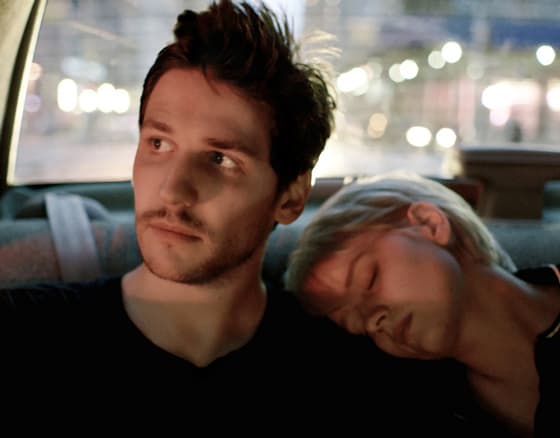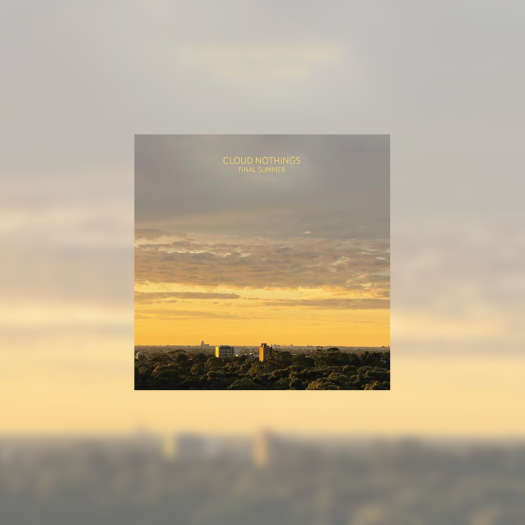For a film set during the rise of the French touch movement, Mia Hansen-Løve's Eden seems devoid of any feeling.
The film primarily concerns itself with Paul Vallée (Félix de Givry), a wannabe writer and literary scholar who, after going to his first late-night dance party, gets swept up in the sounds of Chicago house and garage and decides to start his own production/DJ duo. They call themselves Cheers, which is a fitting title, because much like the show, every character soon knows their name and nothing remarkable ever happens.
For a movie about a form of music that creates an immediate, intoxicated response from its listener, Eden is all exposition and no emotion. The film's characters simply choose to tell what is happening to fill in the historical facts about the time period (when Daft Punk's Guy-Manuel de Homem-Christo and Thomas Bangalter are first introduced in the film, one of Paul's friends hilariously remarks "They make sounds all night with weird machines!" to show their collective naiveté to their country's burgeoning dance music scene) and even go so far as to describe their feelings while listening to music (when Paul and his pal first hear "Da Funk" played at a local party, one of them states "It's amazing modern disco!" followed by a lacklustre "It fucking rocks.")
That's probably because, for all its talk about the heady effects of house music, Eden doesn't really create much of an atmosphere. Club scenes are filmed less like they're hedonistic and joyous experiences for Paul and his friends, and more like winding passageways of pulsating bodies that need to be navigated; one, perhaps unintentional, strength of Hansen-Løve's filmmaking here may be her ability to show the worst part about going clubbing — walking endlessly through drunk and drugged up crowds.
Sadly, outside of depicting the negative experiences of living through late-night club life, Eden doesn't say much. Its title makes Paris in the 1990s seem like the start of something beautiful, but instead it just feels like it could be anywhere in the world. (Even the film's shifts in time would be hard to keep track of if there weren't so many horrible hairstyles tying one part of the film to 2001).
Occasionally, Eden steps away from its humdrum depictions of club life and deals with ideas about intellectualism versus innate ability, raw emotion and pure passion, primarily in arguments between Paul and his mother, a strict academic unable to understand his interest in dance music. But here's the thing: Paul is kind of an idiot, and about halfway through the movie, his dopey grin and woe-is-me attitude starts to wear awfully thin (especially when he complains about his lack of credit and cash when he snorts more cocaine than Greta Gerwig has lines of dialogue).
Long story short, Eden doesn't do the time period it depicts justice, making Hansen-Løve's decision to place her story there seem more like a gimmick to get Daft Punk fans to watch the film, rather than to instil it with any sort of purpose.
(Films We Like)The film primarily concerns itself with Paul Vallée (Félix de Givry), a wannabe writer and literary scholar who, after going to his first late-night dance party, gets swept up in the sounds of Chicago house and garage and decides to start his own production/DJ duo. They call themselves Cheers, which is a fitting title, because much like the show, every character soon knows their name and nothing remarkable ever happens.
For a movie about a form of music that creates an immediate, intoxicated response from its listener, Eden is all exposition and no emotion. The film's characters simply choose to tell what is happening to fill in the historical facts about the time period (when Daft Punk's Guy-Manuel de Homem-Christo and Thomas Bangalter are first introduced in the film, one of Paul's friends hilariously remarks "They make sounds all night with weird machines!" to show their collective naiveté to their country's burgeoning dance music scene) and even go so far as to describe their feelings while listening to music (when Paul and his pal first hear "Da Funk" played at a local party, one of them states "It's amazing modern disco!" followed by a lacklustre "It fucking rocks.")
That's probably because, for all its talk about the heady effects of house music, Eden doesn't really create much of an atmosphere. Club scenes are filmed less like they're hedonistic and joyous experiences for Paul and his friends, and more like winding passageways of pulsating bodies that need to be navigated; one, perhaps unintentional, strength of Hansen-Løve's filmmaking here may be her ability to show the worst part about going clubbing — walking endlessly through drunk and drugged up crowds.
Sadly, outside of depicting the negative experiences of living through late-night club life, Eden doesn't say much. Its title makes Paris in the 1990s seem like the start of something beautiful, but instead it just feels like it could be anywhere in the world. (Even the film's shifts in time would be hard to keep track of if there weren't so many horrible hairstyles tying one part of the film to 2001).
Occasionally, Eden steps away from its humdrum depictions of club life and deals with ideas about intellectualism versus innate ability, raw emotion and pure passion, primarily in arguments between Paul and his mother, a strict academic unable to understand his interest in dance music. But here's the thing: Paul is kind of an idiot, and about halfway through the movie, his dopey grin and woe-is-me attitude starts to wear awfully thin (especially when he complains about his lack of credit and cash when he snorts more cocaine than Greta Gerwig has lines of dialogue).
Long story short, Eden doesn't do the time period it depicts justice, making Hansen-Løve's decision to place her story there seem more like a gimmick to get Daft Punk fans to watch the film, rather than to instil it with any sort of purpose.




